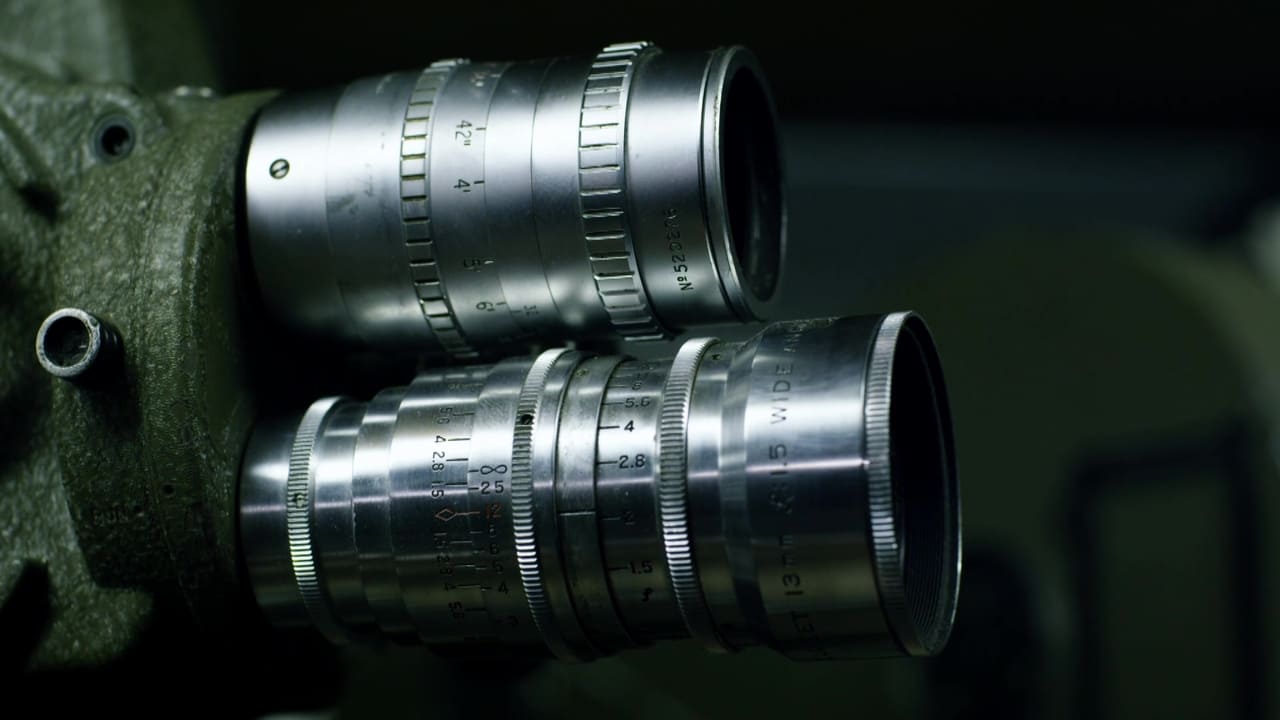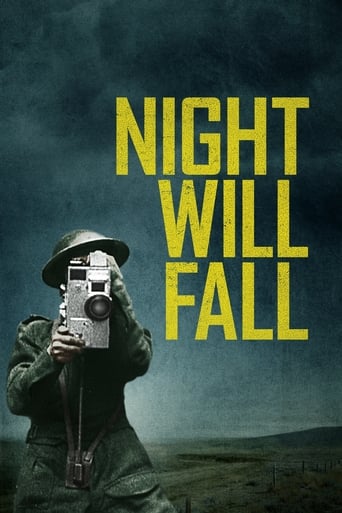

Excellent but underrated film
... View MoreIt's funny watching the elements come together in this complicated scam. On one hand, the set-up isn't quite as complex as it seems, but there's an easy sense of fun in every exchange.
... View MoreIt isn't all that great, actually. Really cheesy and very predicable of how certain scenes are gonna turn play out. However, I guess that's the charm of it all, because I would consider this one of my guilty pleasures.
... View MoreThis movie feels like it was made purely to piss off people who want good shows
... View MoreThis film describes in detail what we already knew about the Nazis. The details of their horrible atrocities need not be gone to in detail here, except as to the contents of the film, itself. Few people realize the immediate effects of the initial sight of the camps on American Generals. Patton toured one camp and emerged so outraged that several adjutants said that they had never seen him so angry. Eisenhower toured a camp and remarked that many US soldiers didn't know what they were fighting for, but now, he could show them what they were fighting against. The large responses to the holocaust were, "oh, it'll never happen again, now!" Look at Uganda 1994, and Serbia 1995. This will never stop unless somebody intercedes. It is the opening of the gateway to hell, with evil piloting the way. If this is not stopped in its tracks, the armies of darkness will march across the earth. It could happen to any one of us, if we don't meet the measures of a tyrannical police state.
... View MoreAs I watched this gut wrenching documentary, I found it hard to believe that there are people in the western world who think we should not take every means necessary to eradicate groups like ISIS. We have a holocaust unfolding before our very eyes on the internet and television, yet millions of people are against taking action against these barbaric, ideologically driven monsters. Perhaps we have become so pampered by our luxurious lives that we can compartmentalize those actions as "someone else's problem" or taking place in a "place far from home". Maybe we are too cowardly to make personal sacrifice for the greater good of humanity. Maybe we have become too optimistic, thinking that there is good in all people. As someone who has faced these "people" face to face, I can assure you that there is nothing redeeming about these demons. They would rape your infant daughter right in front of you, decapitate her and laugh in your face with absolutely no remorse. If we allow this enemy to strengthen, our society has about 5-7 years left.
... View MoreAs above, a factual and irrefutable documentary about the appalling conditions experienced in concentration camps, and the simply dreadful outcome suffered by so many of those who were interned.The scenes were graphic and disturbing, and if they seem repetitive, then that is because the atrocities were so commonplace. It was not a performance, the film is a factual record, thus the purpose in making it was to educate those who want to know the truth, not to entertain anyone.As the 70th anniversary of the liberation of Auschwitz fell this week, I felt that this film serves to help educate all of us who who were not even born at the time of such events. To help us understand the depths of depravity that mankind is capable of, to help us to understand the dreadful consequences of any kind of racism and to remind us that it shouldn't be necessary to have a war to draw allies together (how many people are aware that a staggering 26M Russians were killed in the process of defeating the Nazis?) A monumental and depressing work, brought together as a lesson to us all that this must never happen again
... View MoreNight Will Fall is a potent documentary produced by the British Imperial War Museum covering the consequences of Nazi brutality towards Jews, Slavs and man, women or child considered inferior. As the Allied forces of Great Britain, United States and Canada advanced on the Western and Southern area of Germany, evidence of actual rumored, reported, alleged, speculated and widely believed accounts of state sponsored systematic murdered became distressingly real to the liberating soldiers.The documentary (originally titled: German Concentration Camps factual Survey) contains recently restored actual footage of Nazi atrocities filmed in 1945 by Army camera crews on instructions by the British Psychological War Division. A plentiful amount of footage was gathered throughout the duration of the liberation of Bergen-Belsen, Buchenwald, Dachau and Auschwitz Concentration Camps. Originally, the footage was intended for a 1945 release to highlight the horrors hidden from public view, ignored by others, advocated by some the shocking truth discovered, which later became termed; The Holocaust.Likewise the film makers intended not only to reveal the truth; yet, to edit, clarify and comment on what the world can learn from the reality of in-humanity still unimpaired and unforgettable to many. This restored footage is then inter-cut between interviews and melancholy testaments from British, American and Soviet soldiers, or camp survivor who witnessed the act of atrocities or its aftermath. Evoking as these testaments and interviews are, the uneasy commentary by The BBC War Correspondent Richard Dimbley who witnessed the Liberation of Bergen-Belsen is made even-more dismaying by the revelation that British Intelligence, skeptical of his statement, refrained the BBC from transmitting his broadcast to the public for a week after the April 1945 liberation in order to factually confirm the unbelievable horrors uncovered. Dismaying are also the incitable testaments from a Soviet perceptive of what was similarly, yet more eerie witnessed during the Red Armies liberation of the camps in Poland. Decorously, the documentary-makers have rightfully included a few captivating scenes of the Soviet liberation of Auschwitz. Granted, the images captured by Soviet film-crews are truly worthy of admiration. Unfortunately, because these scenes, combined with the commentary of Soviet War Correspondents, are so captivating, more should have been contained. Engaging, is also the explanation of film-makers and Producers Alfred Hitchcock and Sidney Bernstein and their involvement in the documentary.Night Will Fall is a well presented, somber in commentary, extremely graphic in detail and at times may-be distressing to the viewer. Not only is the visual evidence of The Holocaust painfully revealing; yet, what is also represented is the advanced practices of reporting and commentary of War Correspondences combined with use of newly formed Army Camera Crews. Both methods intended for public exhibition; the original footage captured and the correspondence were innovating in 1945 for allowing the general public, authorised by the Government, with relatively minimal censoring, to bear witness in full overwhelming scenes of war crimes. Therefore, Night Will fall is clear in its focus, effective in its message and one of the best produced documentaries on The Holocaust.
... View More